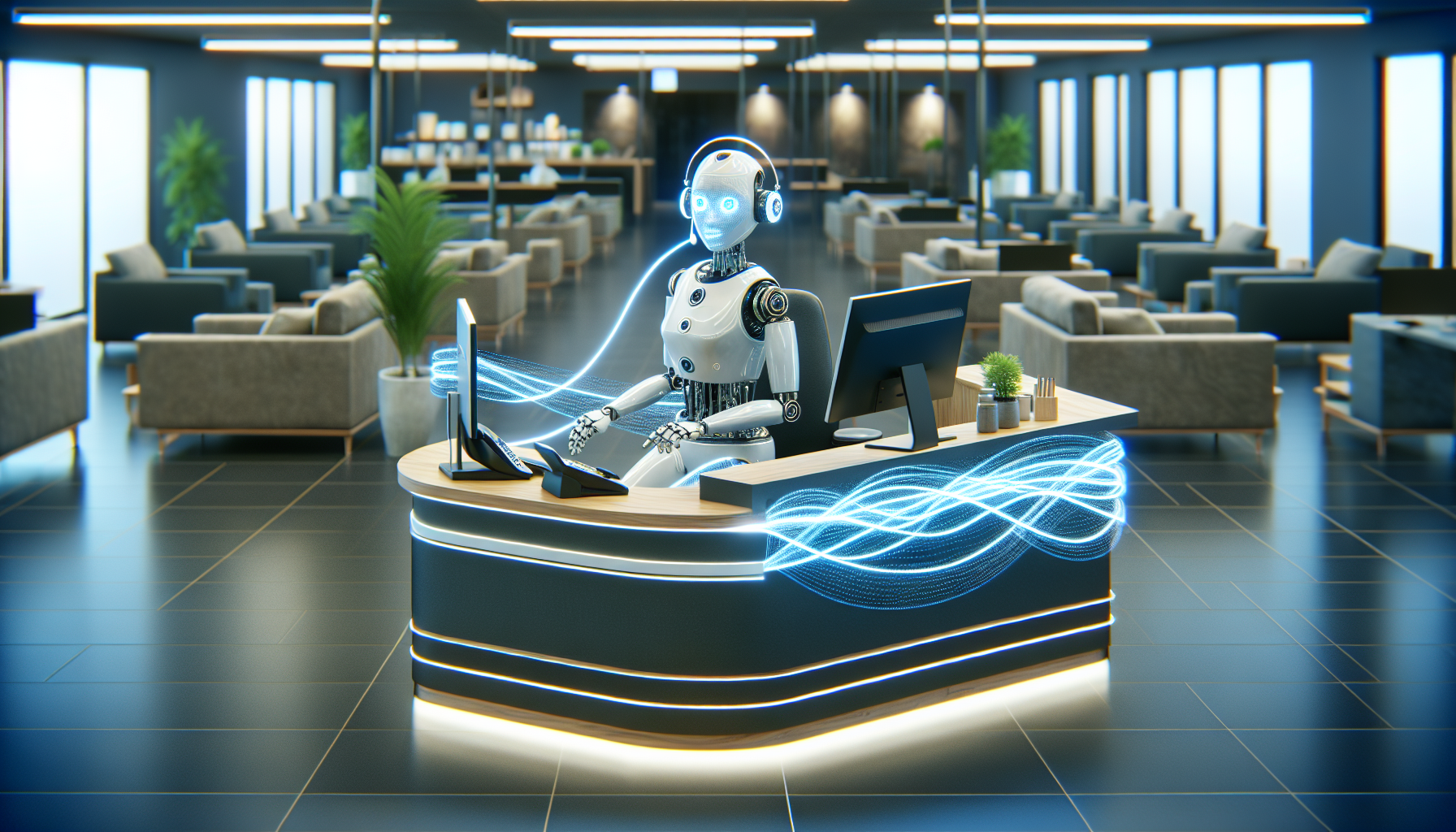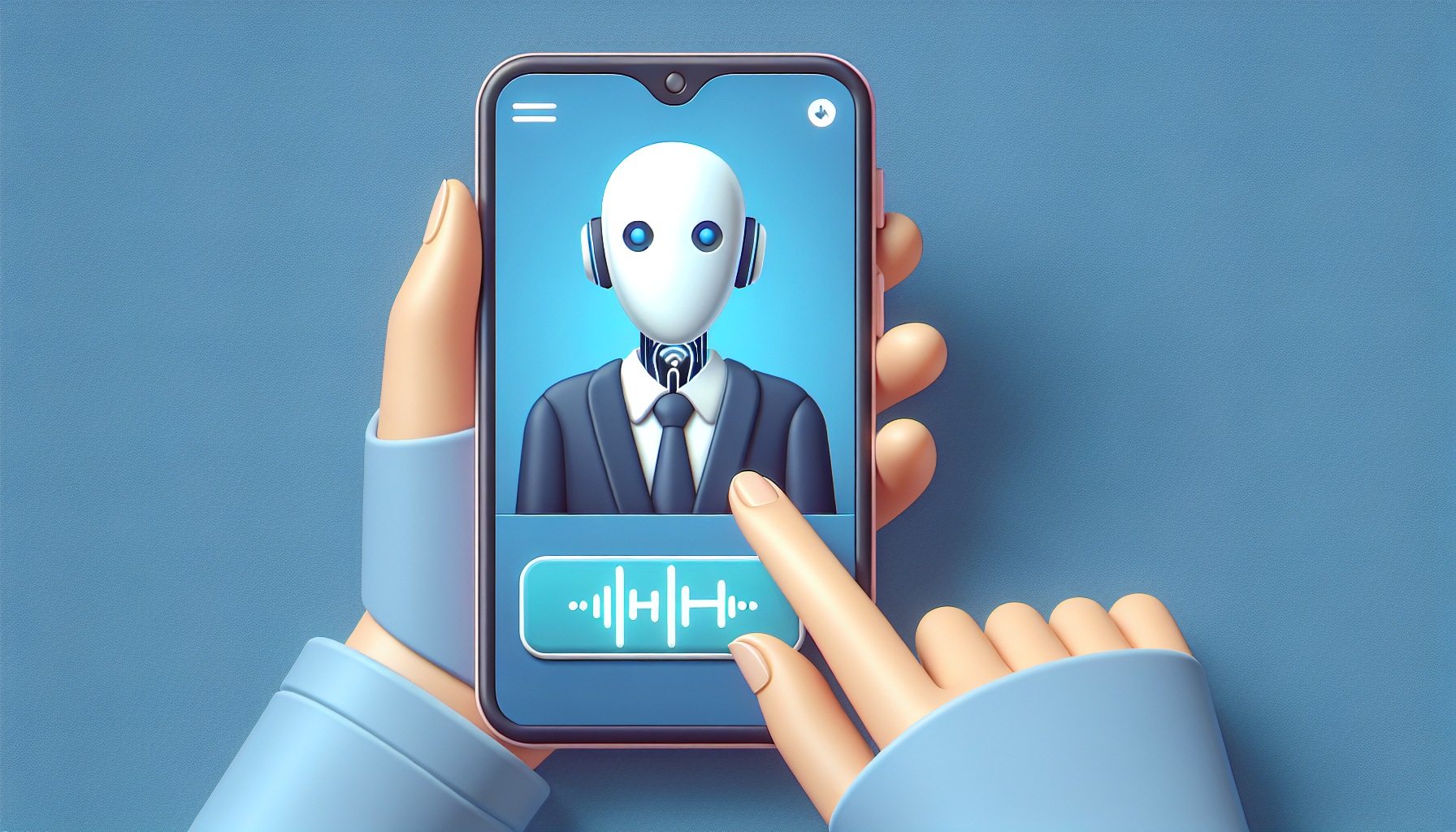
In today's dynamic digital landscape, phone call anxiety has emerged as a widespread challenge that impacts individuals in both personal and professional contexts. Also known as telephonophobia, this form of anxiety is more than just a simple fear of making or receiving phone calls. It constitutes an intense apprehension linked to several social and psychological factors.

For some people, the stress of not being able to interact face-to-face, thus missing out on vital non-verbal cues, can trigger phone call anxiety. Others may fear negative evaluation or confrontation during the call. In some cases, individuals might feel anxiety due to a lack of preparation or control over the conversation. It's worth mentioning that the crux of phone call anxiety often lies in the anticipation of the call rather than the call itself.
In professional contexts, phone call anxiety can have detrimental effects on both employees' mental health and the workflow of businesses. With modern workplaces becoming increasingly reliant on phone and video conferencing tools, it has become vital for businesses to seek innovative solutions that address this issue. This is where the AI Receptionist steps in.
An AI Receptionist is an artificially intelligent software that can undertake phone call operations, often eliminating the stress associated with answering calls. By performing tasks such as answering calls, redirecting inquiries, and fielding messages, AI Receptionist can substantially reduce the burden and anxiety linked to phone communication in organizations.
In the next sections of this article, we delve into the specifics of how an AI Receptionist can aid in mitigating phone call anxiety, effectively enhancing communication practices, productivity, and overall mental well-being in the digital workspace.
Artificial Intelligence (AI) has heavily influenced numerous industries and has brought about significant transformations in various processes. A prominent illustration of this is the advent of AI Receptionists. These state-of-the-art solutions handle a myriad of front-desk tasks, essentially reinventing phone call handling and allaying phone call anxiety.
AI receptionists rely heavily on advanced technologies, namely voice recognition and natural language processing (NLP). Voice recognition helps these AI systems distinguish different speakers and understand spoken instructions, while NLP enables them to comprehend and respond to requests in a human-like manner.
More precisely, when a phone call is made, the AI receptionist decodes the caller's speech, recognizing words, phrases, and intent, thanks to voice recognition technology. Afterwards, with NLP, it processes the received information, breaking down sentences into comprehensible elements to figure out the caller's needs. It then formulates a suitable response which is converted back into speech. This whole process is performed at an astonishingly rapid pace, matching, or even outperforming humans in most instances.
The key advantage of integrating an AI receptionist is the seamless interplay with Customer Relationship Management (CRM) systems. AI Receptionists are designed to flawlessly integrate with existing CRM systems, which enable businesses to keep track of all interactions with customers. Upon receiving a call, the AI Receptionist checks the CRM for the customer’s history and provides hyper-personalized service based on their previous preferences or issues. This suffices to ensure top-notch customer satisfaction, and more importantly, assuage any phone call anxiety that might arise.
```In the fast-paced digital world, phone call anxiety is an often-overlooked but significant obstacle for businesses. Customers may procrastinate calling certain services due to their fear of long hold times, the complexity of their inquiry, or the perceived inconvenience of the call. This is where AI receptionists can truly shine. Artificial Intelligence, cloaked as friendly, efficient receptionist, mitigates several of these anxiety triggers and provides a smoother, stress-free client experience.

The primary stressor for most callers is often the dreaded wait time. A high volume of calls means clients are put on hold, sometimes for extended periods. AI receptionists, capable of handling multiple calls simultaneously, actively combat this issue. They swiftly tend to routine inquiries, thereby minimizing the wait time. The effect of such efficiency is manifold; not only does the customer feel valued, but their anxiety about future calls also significantly reduces.
Another pivotal role of AI receptionists is in scheduling. Executing these tasks can be considered mundane and time-consuming by human receptionists, but they are a breeze for an AI receptionist. Whether it's booking appointments, setting reminders, or managing a calendar, the AI receptionist performs these tasks effortlessly. By relieving customers of this burden, AI further nullifies anxiety triggers.
The third major aspect where AI receptionists alleviate stress is their immediate data access. An AI receptionist, in conjunction with a well-integrated CRM system, can instantaneously retrieve customer data. This eliminates any awkward pauses during the call and allows for a personalized, streamlined communication process. The customer feels recognized and understood, and the conversation progresses smoothly, allaying any lingering call anxiety.
Reduced caller stress translates directly to improved customer experience and satisfaction. An AI receptionist, by seamlessly blending efficiency and empathy, transforms the phone interaction journey from stress-filled to stress-free. As more businesses take advantage of AI receptionists and the benefits they offer, the realm of phone communication, once fraught with anxiety, has a brighter, more accessible future.
When it comes to creating a warm, inviting, and efficient environment around phone-based communication, having an AI Receptionist can be hugely beneficial, particularly for individuals experiencing telephone anxiety.
Research suggests the use of AI technology in call handling can be an effective solution in reducing stress and anxiety associated with phone calls. These smart receptionists, taking human factors into consideration, have the extensive capacity to personalize interactions based on caller data, enhancing the level of empathy and comfort during communication.
Using robust AI algorithms, an AI receptionist can dynamically adapt to the personal needs of every caller. It recognizes call patterns, customer interests and preferences, and can even gauge the emotional state of the caller. Therefore, every interaction with the AI receptionist becomes a tailored experience for the caller, providing reassurance and reducing anxiety. Furthermore, this level of individual attention creates a highly engaging communication experience for the caller, helping to foster stronger relationships between the customer and company.
Another crucial aspect to mention is the improved accessibility offered by AI receptionists. With round-the-clock availability, these systems ensure the caller that assistance is always reachable, effectively reducing the anxiety related to time constraints or unavailability of human attendants. Additionally, the ability to effortlessly process and understand natural language means these AI systems have fewer linguistic barriers, enhancing the accessibility for people from diverse backgrounds.
In summary, AI receptionists are not just improving the efficiency of call handling, but they’re also playing an essential role in reducing phone call anxiety by indirectly improving callers' mental well-being. With the unique ability to provide personalized, empathetic, and accessible communication round the clock, these receptionists are fundamentally changing how we perceive and experience phone-based customer service.
In the digital-centric business landscape, AI receptionists have emerged as effective tools in reducing phone call anxiety. Various enterprises across industries are documented to have successfully implemented AI receptionists, leading to significantly alleviated phone call apprehension among both employees and users.

One such example is Clara, an AI receptionist in the legal industry. The tool is designed to handle appointment scheduling, allowing clients to interact without the intimidation of human receptionists. By significantly minimizing the stress of phone calls, Clara has been able to offer efficiency, accuracy, and most importantly, comfort to its numerous clients.
The transportation and logistics industry, typically characterized by frequent phone communications, has similarly capitalized on the potential of AI receptionists. For instance, Nina, built by x.ai, handles all call-related tasks for its busy transport operators. The AI receptionist's capacity to autonomously manage calls and respond to inquiries, significantly reduces phone call anxiety.
Another sector where the role of AI receptionists has been significant is the healthcare industry. Ada, an AI receptionist, provides a platform for patients to seek medical advice without making intimidating phone calls. The autonomous receptionist not only answers patients' questions but also supplies them with self-care guidance.
All these successful stories showcase that AI receptionists have the potential to reinvigorate multiple sectors by reducing phone call anxiety, improving both user experience and employee productivity
.As the world shifts towards a digital landscape, the role of AI Receptionists in reducing phone call anxiety promises to be more significant. Given that AI receptionists can provide patient, round-the-clock service, advancements in this technology are continually improving customer experiences. They carry the potential to drastically reduce the anxiety surrounding phone calls and improve overall communication.
The next generation of AI receptionists may feature empathetic responses, an advancement that could seriously reduce phone call anxiety. The IBM Watson team, for instance, is dedicated to building AI solutions that understand, reason, learn, and interact like humans. These AI machines could understand the emotional context of the conversation, adapt their responses accordingly and offer real-time emotional support.
In addition to empathetic responses, future AI receptionists may also incorporate multilingual capabilities, broadening their usefulness and accessibility. The ability to communicate effortlessly in the caller’s native language will reduce misunderstandings and enhance comfort during the call, thus assisting in alleviating call-anxiety. Furthermore, the integration of robust speech recognition systems can help AI receptionists more accurately identify and understand a myriad of accents, dialects, and speech patterns, making them more inclusive and better positioned to reduce anxiety.
Lastly, the future of AI receptionists may see increased integration with predictive analytics technology. This advancement would enable AI receptionists to anticipate the needs and queries of the caller, providing more efficient and personalized service. By predicting and addressing issues before they become problems, phone call anxiety could be significantly minimized.
The future of AI receptionists is indeed promising. As technology evolves, these digital assistants are set to radically transform our interactions and mitigate the often intense anxieties associated with phone calls. The combination of empathetic responses, multilingual capabilities, robust speech recognition, and predictive analytics could make AI receptionists an irreplaceable tool in the mission to reduce phone call anxiety.
Start your free trial for My AI Front Desk today, it takes minutes to setup!








